Science Team
The SAM Team is coordinated all over the globe. By accomplishing individual and group goals all across the world, the team has made a real statement to the power of cooperation and communication.
+ Paul Mahaffy – SAM PI:
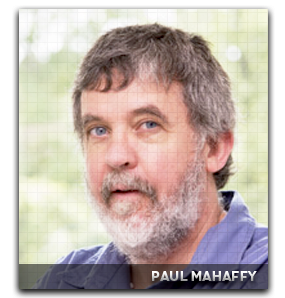 *What is your role in the SAM project?
*What is your role in the SAM project?
Principal Investigator
What about SAM do you find most interesting? Most challenging?
Working with some of the best engineers and scientists on the planet to make lab-like measurements on the surface of Mars and extend the great work of the Spirit and Opportunity rovers.
Have you worked on other missions or flight instruments? If so which ones?
Recent missions have included mass spectrometers on the MAVEN mission currently orbiting Mars and the LADEE mission that sampled the tenuous lunar atmosphere. A mission highlight from the past is the Galileo Probe mass spectrometer that entered Jupiter’s atmosphere in 1995.
What kind/level of education do you have?
Ph.D. in Physical Chemistry
What are your favorite things to do outside of work?
Travel to interesting places on our planet and worry about the fate of civilization on planet Earth.
+ Charles Malespin, SAM Deputy PI:
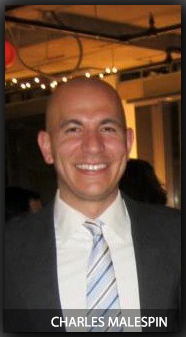 What is your role in the SAM project?
What is your role in the SAM project?
I am the Deputy Principal Investigator for SAM. I also serve as SAM operations lead and am responsible for leading the SAM testbed program.
What about SAM do you find most interesting? Most challenging?
SAM is a very complex instrument and it takes a wide range of people to get it all working. I enjoy being exposed to the various disciplines required to take advantage of SAM's capabilities. The challenging part will be to carefully analyze all the data we will get from complementary instruments.
Have you worked on other missions or flight instruments? If so which ones?
This is my first flight mission, but hopefully not the last..
What kind/level of education do you have?
I have degrees in Astrophysics, Physics, and Applied Physics.
What are your favorite things to do outside of work?
I enjoy playing golf, soccer, and going out with friends around the DC area.
+ Slavka Andrejkovicova:
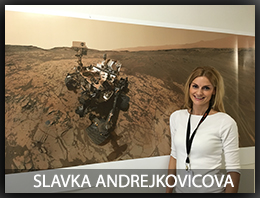 What is your role in the SAM project?
What is your role in the SAM project?
I am a research scientist. The main aim of my work is to perform experiments with Mars analog samples with a focus on organic molecules intercalated into clay minerals.
What about SAM do you find most interesting? Most challenging?
I find everything related to SAM extremely interesting and challenging, since we are performing high level science with a rover that is exploring another planet with enormous success, equipped with a wide range of scientific instruments.
Have you worked on other missions or flight instruments? If so which
ones?
No, this is my first mission and flight instrument experience.
What kind/level of education do you have?
I have a Ph.D. in inorganic materials and technology, specialization in clay minerals and a Masters of Science in nuclear chemistry.
What are your favorite things to do outside of work?
Outside of work, I like spending time with my family in natural parks, museums, the many nice places in Washington DC and getting to know other places in the US. When I have some free time, I also like to draw.
+ Sushil Atreya:
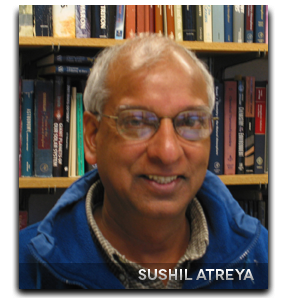 What is your role in the SAM project?
What is your role in the SAM project?
I have been involved in SAM before it was proposed to fly on MSL. I was interested in using SAM to study the atmosphere of Mars, particularly the trace constituents, including methane and the elemental isotopic ratios. Since arriving at Mars in 2012, I have had a number of different roles, initially helping out with MSL ops, helping define and fine-tune SAM measurements needed to address fundamental questions about the workings of present-day atmosphere, climate evolution, and the habitability of Mars, help analyze the data, and develop physico-chemical models to interpret the data to understand above fundamental questions. One on my efforts as a university teacher has been to train future space scientists and engineers and early career scientists by engaging them in my research projects, including my work on SAM.
What about SAM do you find most interesting? Most challenging?
I find the way the three instruments of SAM – QMS, GC, and the TLS – work together to address the most fundamental questions about the habitability of Mars most interesting. This has been instrumental in making so many new discoveries with SAM since Curiosity landed on Mars in 2012. The list is huge, so I give here a sampling of some of the notable ones I have been especially involved in: definitive detection of methane, a potential sign of microbial life and/or water-rock reactions, seasonal change in methane and oxygen, surface-atmosphere interactions, first high precision measurements of noble gas isotopic ratios, including 36Ar/38Ar which unequivocally confirmed that the so called martian meteorites are indeed rocks from Mars as well as that Mars lost much of its original atmosphere in the past four billion years, etc. It’s exciting, interesting, and challenging. The biggest challenge I have found is balancing the atmospheric science measurements against solid sample analysis, considering the limited lifetime of the WRPs, as I’m interested in the solid sample analysis also since they complement the atmospheric data and thus provide valuable insight into the habitability of Mars. I should add the SAM Team works very well together, so we usually find a good compromise.
Have you worked on other missions or flight instruments? If so which
ones?
Fresh out of graduate school, I was fortunate to work as a co-investigator on the UV Spectrometer of the Voyager missions to the giant planets. Since then I have worked on the science and experiment teams of a number of solar system exploration missions of NASA, ESA, JAXA and Roscosmos, including Juno Jupiter Polar Orbiter, Galileo Probe and Orbiter at Jupiter, Cassini-Huygens at Titan and Saturn, Mars Express and Venus Express Missions, to name just a few. I have also been developing concepts of future spacecraft missions, especially to the icy giant planets, Saturn (probe), and Venus in collaboration with colleagues at JPL, Goddard and Europe.
What kind/level of education do you have?
I have a PhD atmospheric and space science. My undergraduate and master's degrees were in physics, chemistry and math, and I teach in the engineering school at the University of Michigan in Ann Arbor.
What are your favorite things to do outside of work?
Biking, hiking and exploring world's deserts and mountains, whenever I can steal a few free moments.
+ Mehdi Benna:
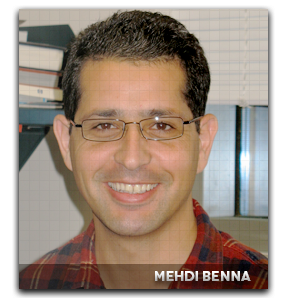 What is your role in the SAM project?
What is your role in the SAM project?
I am a member of the engineering team of SAM and a science collaborator of the
investigation.
What about SAM do you find most interesting? Most challenging?
The complexity and the density of the instrument made its design (electrical,
mechanical and thermal) extremely challenging. It was amazing to see all the
elements of SAM coming together and interacting smoothly with each other. It is
definitely a testimony to the skill of all the engineers who contributed to the design of the instrument.
Have you worked on other missions or flight instruments? If so which ones?
CONSERT on the Rosetta probe (ESA)
What kind/level of education do you have?
Electrical Engineer and PhD in space science
What are your favorite things to do outside of work?
Flying Airplanes
+ Lora Bleacher:
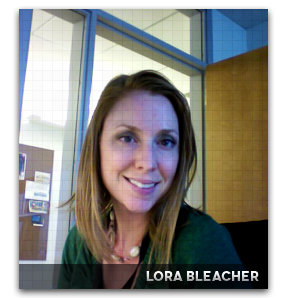 What is your role in the SAM project?
What is your role in the SAM project?
I'm on the SAM Education and Public Outreach Team. I incorporate SAM science and
engineering information into products and programs for students, teachers, and the general public.
What about SAM do you find most interesting? Most challenging?
I find it amazing that SAM combines so much scientific potential into such a small space (about the size of a microwave)! Due to the complexity of the SAM suite it can be challenging to accurately describe its capabilities.
Have you worked on other missions or flight instruments? If so which ones?
Yes, I have worked on the education and public outreach teams for several missions,
including the Lunar Reconnaissance Orbiter and MESSENGER missions.
What kind/level of education do you have?
M.S. in Geosciences, with a focus on meteorites and planetary geology
What are your favorite things to do outside of work?
Hanging out with family and friends, exercising, cooking, and reading
+ Oliver Botta:
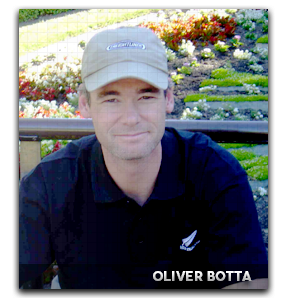 What is your role in the SAM project?
What is your role in the SAM project?
As a member of the MSL team, I will perform: scientific support of the SAM
investigation including analysis of data processing software code, analysis of
chromatograms and mass spectra, and duties in MSL operations as a Science Theme
Group member (data assessment, activity planning, and strategic planning).
What about SAM do you find most interesting? Most challenging?
Most interesting: the instrument has the capability to provide very interesting data that will help in the understanding of fundamental questions on the habitability of Mars, in the past or perhaps in the present.
Have you worked on other missions or flight instruments? If so which ones?
Yes, on the Mars Organic Detector instrument originally selected for the 2003 Mars lander mission.
What kind/level of education do you have?
Ph.D. in organic chemistry
What are your favorite things to do outside of work?
Spend time with my family, sports, read.
+ Michel Cabane:
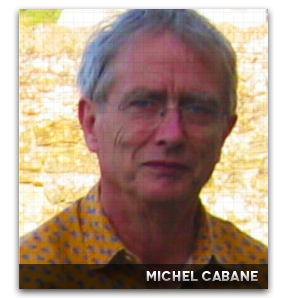 What is your role in the SAM project?
What is your role in the SAM project?
I have the responsibility of SAM's GC subsystem, developed in France (University of
Paris, CNRS), funded by CNES
What about SAM do you find most interesting? Most challenging?
The most interesting is the search for organic molecules ; the most challenging is to
have all SAM parts working altogether, especially concerning the (fruitful) French
(Univ.of Paris) - US (GSFC) cooperation
Have you worked on other missions or flight instruments? If so which ones?
I worked on ACP experiment (aerosols) aboard Huygens probe in Titan's
atmosphere (Cassini-Huygens mission to Saturn), NASA-ESA mission, launched in
1997, landed in 2004 ; COSAC experiment (analysis of the soil) aboard the Philae
lander of Rosetta/ comet Churyumov-Gerasimenko), ESA mission, launched in
2004, landing expected fin 2014 ; GAP experiment (analysis of the soil) aboard
Phobos-Grunt, RosCosmos mission, to be launched in 2011, landing expected for
2013.
What kind/level of education do you have?
Thesis at University of Paris : ionisation of air (radioactivity, electrical discharges ;
electric mobility and mass spectra), role of pollutants.
What are your favorite things to do outside of work?
Art (primitive art, roman numismatics), walking in the hills (fossils, archaeology :
South of France), classical music.
+ Joanna Clark:
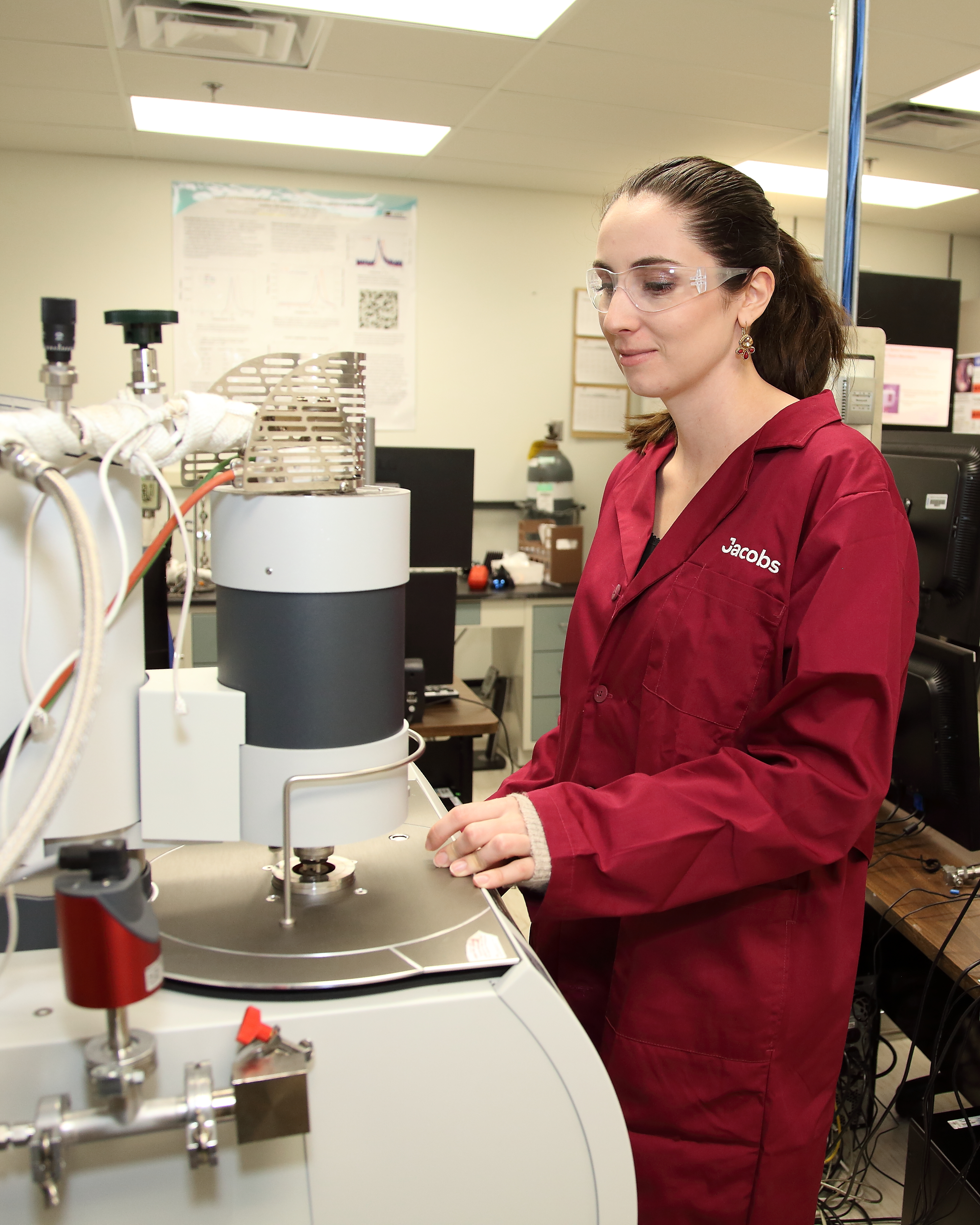
I do laboratory analog experiments at Johnson Space Center to help us better understand the SAM evolved gas data. I am also a payload uplink lead for the SAM instrument.
What about SAM do you find most interesting? Most challenging?
SAM is interesting because understanding the data is like solving a puzzle. It is really exciting to try and understand data being collected on another planet! SAM is challenging because one gas (or a combination of gases) can be caused by multiple minerals or phases. Running analog experiments in the lab can help us narrow down what minerals or phases are present. This can tell us about past geochemical and environmental conditions.
Have you worked on other missions or flight instruments? If so which ones?
SAM is the first flight instrument I have worked with. I hope to work on more missions in the future.
What kind/level of education do you have?
I have a BA and MS in geological sciences. I am also pursuing a PhD in geology with a focus on martian surface geochemistry.
What are your favorite things to do outside of work?
Outside of work, I enjoy walking, being outside, hanging with friends and family, and playing with my dogs.
+ Barbara Cohen:
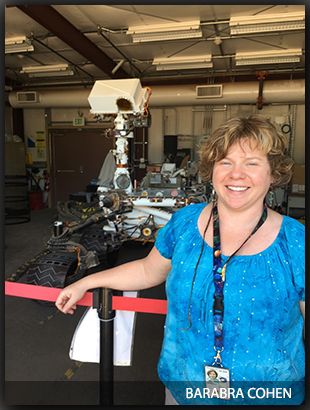 What is your role in the SAM project?
What is your role in the SAM project?
Participating scientist working with SAM, ChemCam, and MAHLI to investigate the geochronology (age) of rocks in Gale Crater
What about SAM do you find most interesting? Most challenging?
It is so complex! I am still learning all the different aspects of the mass spectrometer and how to conduct experiments.
Have you worked on other missions or flight instruments? If so which ones?
I have been a participating scientist on the Mars Exploration Rovers (Spirit and Opportunity) since 2006 and now serve as the Associate PI for Opportunity. I am the PI for a cubesat mission called Lunar Flashlight that will launch to the Moon in 2019 and measure water frost at the lunar poles.
What kind/level of education do you have?
BS in Geology and PhD in Planetary Sciences. So I’m unqualified to do anything practical in life :)
What are your favorite things to do outside of work?
I enjoy hiking and reading on my days off, I am a baseball fan, and we love to travel, particularly to scuba dive. I’m fortunate that my job has taken me to all seven continents!
+ Patrice Coll:
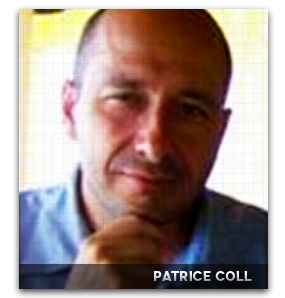 What is your role in the SAM project?
What is your role in the SAM project?
I'm SAM Deputy Co-Principal Investigator, and scientific Co-Investigator of SAM
instrument. I am mainly involved in the developpement of the SAM_GC (Gas
Chromatograph) instrument, supported by the French Space Agency (CNES). I am
Professor at University Paris Diderot, France, member of LISA laboratory.
What about SAM do you find most interesting? Most challenging?
So much complexity in such a short time of development! And also the capacity for
SAM folks to act as a whole team, with so many people and differences (I heard that
even some French are on board!)
Have you worked on other missions or flight instruments? If so which ones?
Yes I did! At the very end of its development and during the operations phase of the
Aerosol Collector Pyrolyser experiment onboard Cassini-Huygens mission (NASA/
ESA), and currently for the Gas Analyser Package onboard Phobos-Grunt mission
(Roskosmos) and for the Mars Organic Molecule Analyser on ExoMars mission
(ESA). I also participate in several activities at Low Earth Orbit (International Space
Station...).
What kind/level of education do you have?
Ph.D. in Environmental Chemistry
What are your favorite things to do outside of work?
Outside of work? What does that mean? Let's say playing rugby (oooh what a rude
boy!) on Friday night and to travel with my family (India, USA...).
+ Pan Conrad:
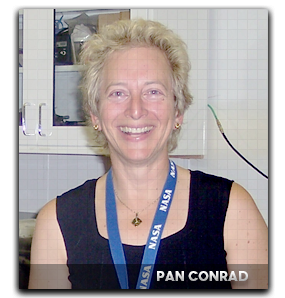 What is your role in the SAM project?
What is your role in the SAM project?
Scientific co-investigator and investigation
scientist. I also have the lead for providing the Organic Check Material (OCM) that
will serve as an external standard for SAM.
What about SAM do you find most interesting? Most challenging?
I've never worked on a project capable of doing so many different science
experiments before. Add that to doing them on another planet, and it's very exciting.
I decided to be a scientist as a career change later in my life than most scientists
and I never thought I would get to do experiments on Mars! The most challenging
thing is understanding the relationship between writing requirements and doing
the things you want to do. Requirements are the instructions the engineers use to
build the instrument suite, so we have to be able to express in a very detailed way
what we want it to do before it is even built. I imagine that this is what a computer
programmer goes through when they try to write detailed instructions to get a
robot to do something.
Have you worked on other missions or flight instruments? If so which ones?
This is my first one! I hope it is just the first :)
What kind/level of education do you have?
To do my job, you have to get a PhD in science. I am an interdisciplinary scientist,
which means it's a mix of geology, chemistry, biology, physics and sometimes
engineering! My PhD is in geology, but before that I studied music. If you work hard,
you can fit more than one education into your life.
What are your favorite things to do outside of work?
I train in karate three days a week and I am a member of the Shenandoah Mountain
Search and Rescue Group. I like to do almost everything I can think of, but there
isn't too much time outside of work right now. It takes a lot of time and sacrifice to
prepare for a robotic expedition, but I think it's definitely worth it!!!
+ Jason Dworkin:
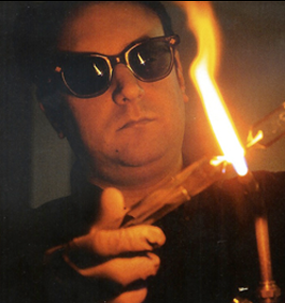 What is your role in the SAM project?
What is your role in the SAM project?
I am a collaborator for the derivatization samples that will allow the detection of
polar organic compounds, potentially relevant for life.
What about SAM do you find most interesting? Most challenging?
The ability to do complex laboratory chemistry outside the laboratory is most
interesting. Most challenging will be interpreting the unexpected results SAM will
present.
Have you worked on other missions or flight instruments? If so which ones?
I am deputy project scientist for OSIRIS-REx, a New Frontiers 3 concept study and
co-I for MOMA, an instrument for ExoMars.
What kind/level of education do you have?
Ph.D. in biochemistry
What are your favorite things to do outside of work?
Family time at home.
+ Jen Eigenbrode:
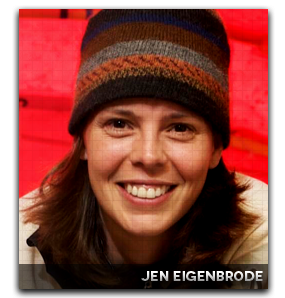 What is your role in the SAM project?
What is your role in the SAM project?
I am a MSL participating scientist.
What about SAM do you find most interesting? Most challenging?
I think the most challenging aspect of SAM will be in its application. As Earth scientists we are bias to what we know of Earth organic geochemistry. On Mars, we will need to depend on this knowledge base, but be open to moving beyond it. Mars may have been more like Earth in the past, but it has been vastly different for billions of years. Staying aware of our terrestrial biases and assumptions will be key to making scientific progress on understanding the history of organic materials on Mars and determining the source of the organic molecules Curiosity finds.
Have you worked on other missions or flight instruments? If so which
ones?
SAM is the first flight instrument I have worked on and MSL will be my first planetary mission.
What kind/level of education do you have?
I have a Ph.D in Geosciences, with a strong background in field geology and organic geochemistry.
What are your favorite things to do outside of work?
I spend my free time whitewater kayaking on the Potomac River and other regional rivers. I also enjoy mountain biking, trail running, and skiing.
+ Gregory Flesch:
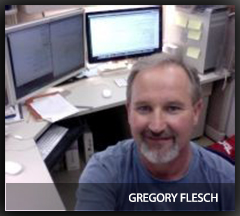 What is your role in the SAM project?
What is your role in the SAM project?
I work as a Data Analyst with PI Chris Webster to process the TLS data. As TLS Software Engineer I developed the instrument control and data analysis software.
What about SAM do you find most interesting? Most challenging?
SAM is a very complex instrument and the opportunities to collect data are limited. Working to resolve issues is challenging, but fun and rewarding too.
Have you worked on other missions or flight instruments? If so which ones?
Before MSL, our group was involved in many NASA atmospheric missions to study both ozone/chlorine chemistry as well as understand water and atmospheric dynamics.
What kind/level of education do you have?
I have a B.S. and M.S. in Computer Science.
What are your favorite things to do outside of work?
I play guitar in a few bands and do a little music scoring work for TV and some video games. I also love to ride my motorcycle in the mountains around Los Angeles.
+ Heather Franz:
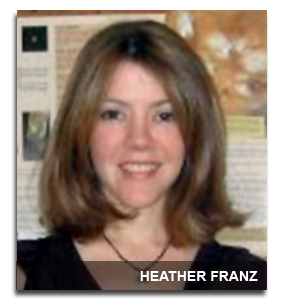 What is your role in the SAM project?
What is your role in the SAM project?
I'm a research analyst with the SAM science team. I use the SAM prototype instrument to perform evolved gas analysis of Mars analog rocks and mineral standards to facilitate interpretation of the data acquired on Mars. As an isotope geochemist, I.ve developed a method for measuring sulfur isotope ratios with SAM's Quadrupole Mass Spectrometer (QMS), since we no longer have a channel on the Tunable Laser Spectromter (TLS) that can measure sulfur isotopes. I.ve also developed software tools that will be used for SAM data analysis.
What about SAM do you find most interesting? Most challenging?
I think it's very exciting that SAM is carrying the most advanced instruments yet sent to Mars to search for signs of life or habitability. I'm thrilled to be part of the team, and I can't wait to see what we find on Mars. The most challenging aspect is coaxing SAM to make measurements it wasn't optimized to do.
Have you worked on other missions or flight instruments? If so which ones?
I joined the SAM team after working for 14 years in mission design and navigation here at GSFC. I've had the opportunity to work on many interesting missions, especially designing the unique trajectory for the Wind spacecraft and guiding it through 38 lunar gravity assist flybys. Besides Wind, I've also worked on Polar, Triana, MMS, IMP-8, SOHO, ACE, WMAP, ERBS, and the CGRO controlled reentry.
What kind/level of education do you have?
I earned a Ph.D. in Geology, focused on the sulfur isotopic composition of Martian meteorites. I also have a B.S. in Aerospace Engineering, B.A. in Dance, and M.S. in Applied Physics.
What are your favorite things to do outside of work?
I'm still passionate about dance, and I spend as much time as I can both dancing and attending dance performances in Washington and New York. I also enjoy playing piano, gardening, and hiking.
+ Caroline Freissinet:
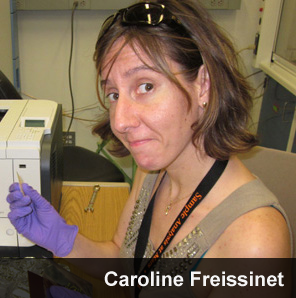 What is your role in the SAM project?
What is your role in the SAM project?
I'm a chemist, involved in the GC-MS part of SAM, and more specifically in the derivatization experiment, which enables SAM to detect and identify heavy organic molecules such as carboxylic and amino acids in Mars solid samples.
What about SAM do you find most interesting? Most challenging?
Most interesting is to see all the different persons, coming from such diverse backgrounds, all working on this same and one project which is SAM. This passionate work of all these people for a unique cause is incredible. Most challenging is to make something work as a whole on Mars when it's so complex to make each part of it work independently in the lab! Also, every little detail had to be thought carefully because there is nothing possible to add or remove once there, or noone to fix it. You can't forget anything. It's far beyond the level of when you are in the field trip and have to work with what you brought only, which is already so much challenging.
Have you worked on other missions or flight instruments? If so which ones?
I've worked during my PhD on research and technology program applied to the Mars Organic Molecules Analyzer (MOMA) experiment onboard the NASA-ESA joint ExoMars mission.
What kind/level of education do you have?
PhD in analytical chemistry which I defended at Ecole Centrale Paris in 2010. My background is in molecular biology, biochemistry and evolutionary biology.
What are your favorite things to do outside of work?
Outside of work, I love to be outside of the world, shooting the most remote and inspiring landscapes with my Nikon after endless hikes, vertical rockclimbing, mountain treks and/or backcountry skiing. I travel the world to find such stunning places and adrenaline to get there. I can still bring non-contaminated samples from such remote locations!
+ Claude Geffroy:
 What is your role in the SAM project?
What is your role in the SAM project?
I am a member of the engineering team of SAM and a science collaborator of the
investigation.
What about SAM do you find most interesting? Most challenging?
The complexity and the density of the instrument made its design (electrical,
mechanical and thermal) extremely challenging. It was amazing to see all the
elements of SAM coming together and interacting smoothly with each other. It is
definitely a testimony to the skill of all the engineers who contributed to the design of the instrument.
Have you worked on other missions or flight instruments? If so which ones?
• CONSERT on the Rosetta probe (ESA)
• NGIMS on the Maven Mission (NASA)
• NMS on the LADEE Mission (NASA)
• MOMA on the ExoMars Rover (ESA/NASA)
What kind/level of education do you have?
Electrical Engineer and PhD in space science
What are your favorite things to do outside of work?
Flying Airplanes
+ Danny Glavin:
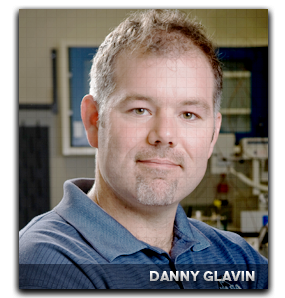 What is your role in the SAM project?
What is your role in the SAM project?
During the development of the SAM instrument, I participated in the design, assembly and testing of the SAM wet chemistry cups and experiments that enable the gas chromatograph mass spectrometer (GCMS) to detect a variety of different organic compounds of prebiotic and biotic interest including amino acids and carboxylic acids. I was selected by NASA to be a Participating Scientist on the Mars Science Laboratory mission to help optimize pyrolysis GCMS measurement protocols to identify these organic compounds and I also supported instrument operations as a SAM Payload Downlink Lead (PDL). I continue to support the analysis and interpretation of SAM GCMS data.
What about SAM do you find most interesting? Most challenging?
For me, the most interesting aspect of SAM is being part of the team that was the first to discover unambiguous evidence for organic compounds in the martian near-surface and trying to figure out how they were formed. The most challenging aspect of SAM is working in a highly resource constrained environment with the most complex instrument suite ever sent to Mars.
Have you worked on other missions or flight instruments? If so which ones?
I am a Co-Investigator on the Mars Organic Molecule Analyzer (MOMA) instrument that is part of the ExoMars mission. I am also leading the organics analysis team as a Co-Investigator on the OSIRIS-REx asteroid sample return mission that will return samples to Earth from asteroid Bennu in 2023. Currently, I am supporting the development of requirements for the Mars Sample Return campaign to help ensure the science integrity of the samples returned to Earth (currently 2031) is maintained.
What kind/level of education do you have?
Ph.D. in Earth Science
What are your favorite things to do outside of work?
Traveling and spending time outdoors camping with my wife Florence and two children Thomas and Nicolas, fantasy football, and playing softball and golf.
+ Fred Goesmann:
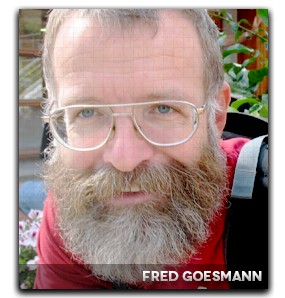 What is your role in the SAM project?
What is your role in the SAM project?
CoI of the GC part
What about SAM do you find most interesting? Most challenging?
My involvement in the hardware phase was rather small. I think, I missed
something.
Have you worked on other missions or flight instruments? If so which ones?
Rosetta (COSAC), Beagle II (GAP), Phobos Grunt (gas analysis)
What kind/level of education do you have?
PhD in physics and materials science
What are your favorite things to do outside of work?
Play the Scottish Bagpipe, ride my recumbent bike
+ Christopher House:
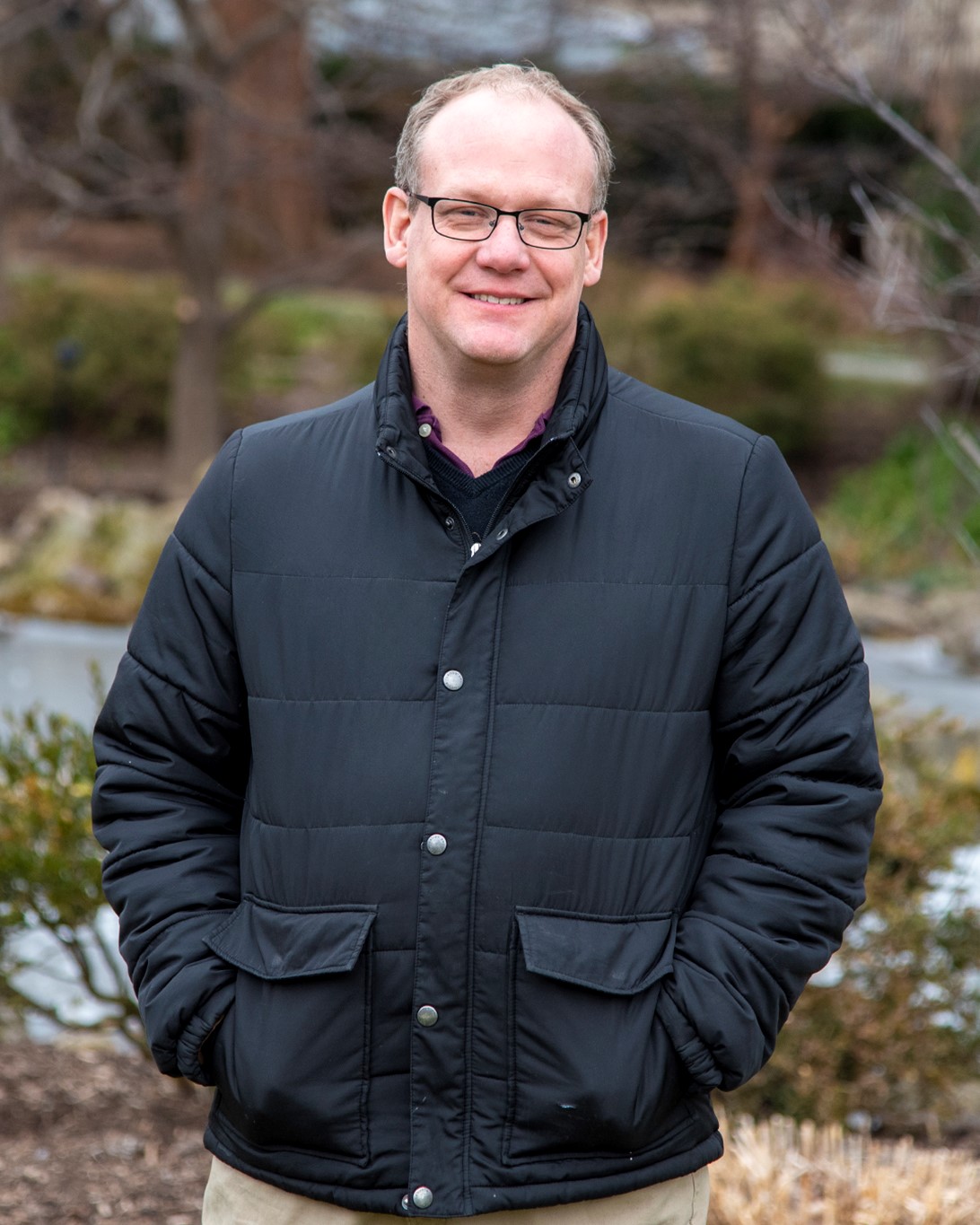 What is your role in the SAM project?
What is your role in the SAM project?
I joined the SAM team as a participating scientist. My background is in studies of microbial geochemistry on Earth. I have worked on ancient life on Earth, as well as studied a wide range of microorganisms in the subsurface of the Earth. My role on SAM is to help interpret the gases and isotopes we see liberated from the samples taken on Mars.
What about SAM do you find most interesting? Most challenging?
It is fabulous that we have a sophisticated mass spectrometer on Mars. I find it exceedingly interesting that Mars has abundant mudstones and other evidence for a past history of surface water. It is challenging to continue to move to new locations around Gale Crater each day while still trying to understand the past locations that we have studied.
Have you worked on other missions or flight instruments? If so which ones?
This is the first time I've worked on the team for a flight instrument.
What kind/level of education do you have?
I have my B.S. in Biochemistry and Cell Biology from UCSD, and I have a Ph.D. in Geology from UCLA.
What are your favorite things to do outside of work?
Skiing, hiking, hanging out with my wife, and playing with my three daughters.
+ Sarah Stewart Johnson:
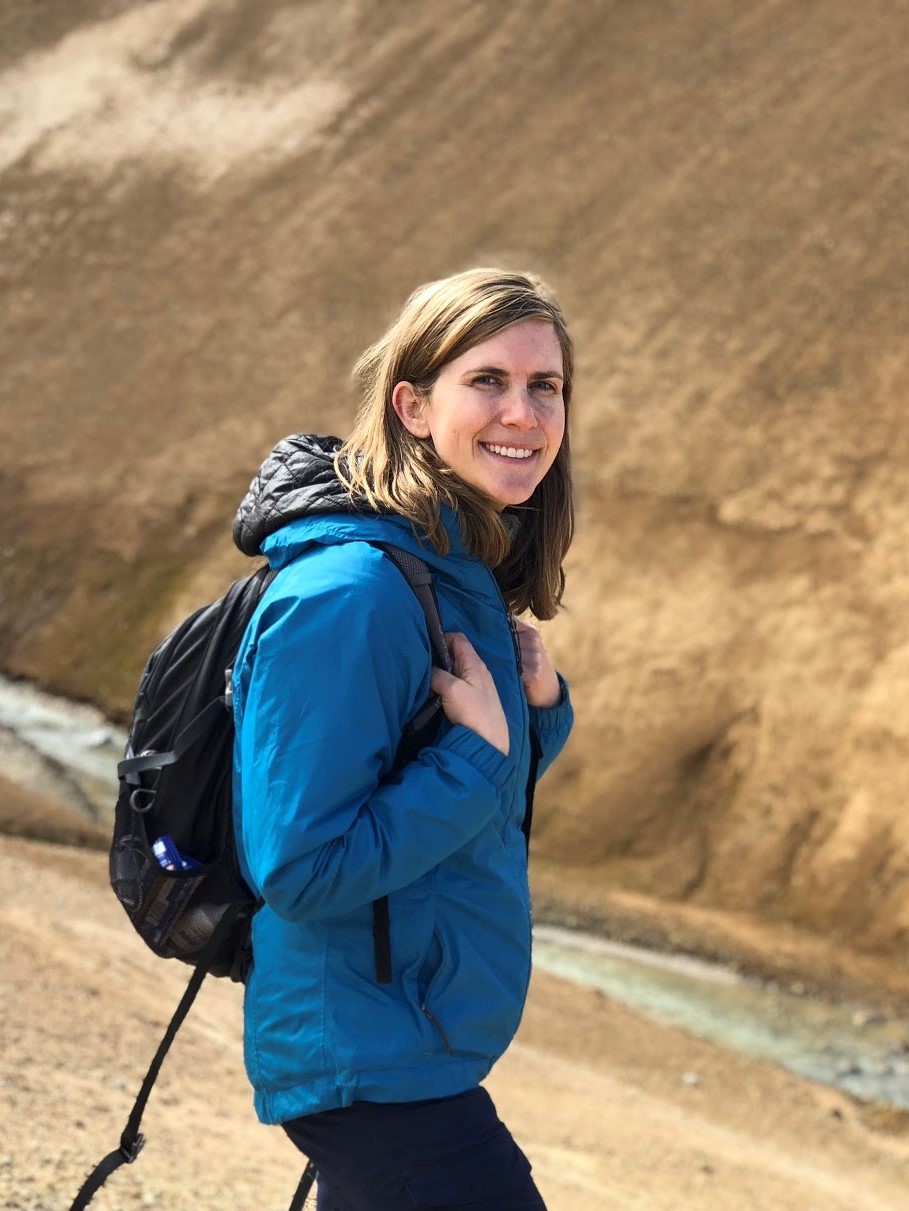 What is your role in the SAM project?
What is your role in the SAM project?
In my lab at Georgetown, we're completing laboratory MTBSTFA experiments on analog Mars samples and using the data to help interpret SAM's wet chemistry results.
What about SAM do you find most interesting? Most challenging?
I still find it breathtaking that we can send an instrument built by human hands all the way to Mars. I think of how impossible that would have seemed just one human lifetime ago!
Have you worked on other missions or flight instruments? If so which ones?
I had the chance to work on the Spirit and Opportunity rovers as a graduate student. It was an extraordinary opportunity.
What kind/level of education do you have?
I have a Ph.D. in planetary science and an M.Sc. in biology. My work in astrobiology is right at the intersection of the two.
What are your favorite things to do outside of work?
I love creative writing, exploring remote places, and spending time with my two kiddos.
+ Andrea Jones:
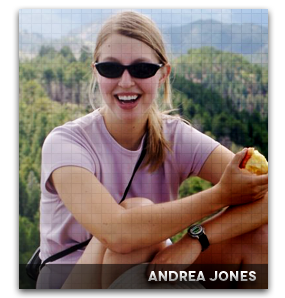 What is your role in the SAM project?
What is your role in the SAM project?
I am a member of the SAM Education and Public Outreach (EPO) Team. It is my job
to stay current on science results from SAM and other instruments onboard the
Curiosity rover, and to share this information with teachers, students, and the public
in meaningful ways.
What about SAM do you find most interesting? Most challenging?
SAM is an amazingly complex, powerful scientific instrument. Trying to explain how
it works and what it can (and cannot) do to non-scientists is difficult, but also lots of
fun.
Have you worked on other missions or flight instruments? If so which ones?
Yes, I am currently a member of the Lunar Reconnaissance Orbiter EPO Team. I
have also worked with the Aura mission and the High Resolution Imaging Science
Experiment (HiRISE) Science Team.
What kind/level of education do you have?
M.S. in Geosciences, with a focus in planetary geology
What are your favorite things to do outside of work?
Hiking, skiing, camping, stargazing, reading, and making homemade cheese!
+ Christine Knudson:
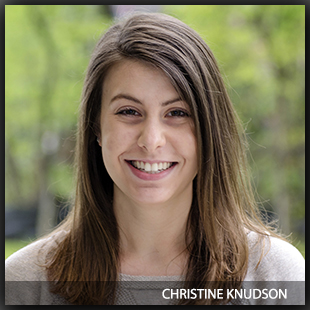 What is your role in the SAM project?
What is your role in the SAM project?
I work on laboratory EGA experiments of analog minerals and mineral mixtures to help with the interpretation of data acquired by SAM on Mars. I am also a SAM PDL.
What about SAM do you find most interesting? Most challenging?
SAM is an incredibly complex and advanced instrument that has already taught us so much about our planetary neighbor. I think it is amazing how many different people had to come together to create such a useful instrument capable of making so many types of scientific measuremnts on another planet.
Have you worked on other missions or flight instruments? If so which ones?
I haven’t worked on any other missions or flight instruments, this is my first one!
What kind/level of education do you have?
I have a M.S. in Geology, specifically igneous petrology and geochemistry.
What are your favorite things to do outside of work?
I really enjoy hiking, traveling, gardening, and reading.
+ Laurie Leshin:
 What is your role in the SAM project?
What is your role in the SAM project?
I am a Co-Investogator on SAM, which is "NASA speak" for saying that I am a member of the SAM science team. I was involved in the original proposal for SAM many years ago.
What about SAM do you find most interesting? Most challenging?
The most fun thing for me about the SAM experiment if that it is essentially identical to experiments I have done in labs on Earth, but on the ground those labs were as large as a whole room (and SAM is the size of a microwave oven)! For example, for my PhD thesis I heated up samples of Martian meteorites, extracted the water and CO2, trapped them, and analyzed their abundance and isotope compositions to understand the history and evolution of martian volatiles. We are doing essentially the same experiment with SAM on the surface of Mars! That's so cool. But because I've done the experiment on Earth, I know how challenging and complicated it can be. So what we're doing with SAM is incredibly complex. It's a technological marvel. And when it works, we will learn so much!
Have you worked on other missions or flight instruments? If so which ones?
I'm also a member of the Alpha Particle X-ray Spectrometer (APXS) team on Curiosity, which measures bulk chemistry of rocks and soils, which will help us pick interesting samples for SAM. I was also involved in the Mars Polar Lander mission, which crashed on Mars in 1999. So, I know how difficult and heartbreaking exploring other worlds can be.
What kind/level of education do you have?
I have a PhD in Geochemistry.
What are your favorite things to do outside of work?
Outside of work is all about spending time with my family - my husband, stepsons, and dog and cat! I enjoy traveling to new places, cooking and eating yummy food, and baking cakes that look like things. I also enjoy giving my time to advance women and girls in STEM fields.
+ James Lewis:
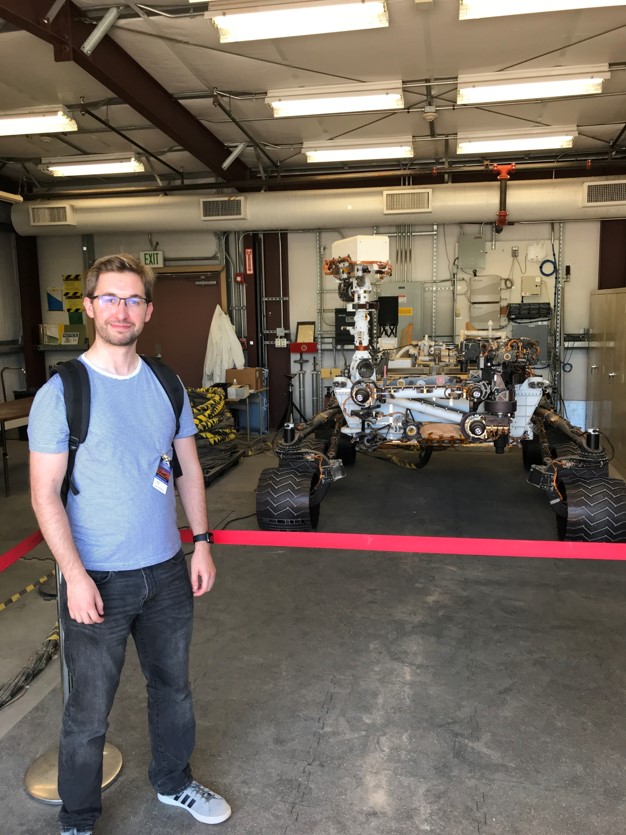 What is your role in the SAM project?
What is your role in the SAM project?
I am a geochemist by training and my role is to help unpick some of the interactions that can occur between minerals and organic matter during SAM experiments. This assists the team in making interpretations about the organic chemistry of Mars and better understanding its potential for life. I also support Curiosity rover mission operations as a Payload Downlink Lead for SAM, which involves reviewing and distributing SAM engineering and science data coming back from Mars.
What about SAM do you find most interesting? Most challenging?
Recently in the space of a week I spoke with middle school students about SAM and Mars in the middle of Death Valley, supported mission operations, conducted lab work, and took notes on a meeting of the rover science team. I think this answers both questions.
Have you worked on other missions or flight instruments? If so which ones?
This is my first time working for a flight instrument science team. It's been a very exciting experience and I have learned a huge amount about how active missions operate.
What kind/level of education do you have?
I completed a PhD in planetary science and organic geochemistry at Imperial College London in 2016 before moving out to the US.
What are your favorite things to do outside of work?
I enjoy baking, movies, running, and exploring National Parks. I'm also trying to teach myself piano, Spanish, and Python.
+ Eric Lyness:
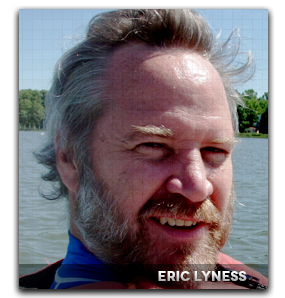 What is your role in the SAM project?
What is your role in the SAM project?
I work on GSE software and science data analysis software.
What about SAM do you find most interesting? Most challenging?
Getting the most usable science data out of the SAMS raw data output.
Have you worked on other missions or flight instruments? If so which ones?
I previously worked on test software for MicroShutters for the James Webb Space
Telescope and laser characterization systems for DESDnI.
What kind/level of education do you have?
I have a BS in computer science.
What are your favorite things to do outside of work?
Canoe camping with my family.
+ Heidi Manning:
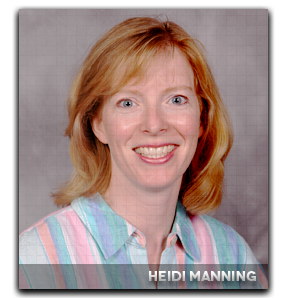 What is your role in the SAM project?
What is your role in the SAM project?
I am one of the people working on the education and public outreach of the SAM
project. I also performed some laboratory testing that aided in the design of the
SAM electronics.
What about SAM do you find most interesting? Most challenging?
I find the SAM mission very interesting and challenging because it is so complex.
There are so many aspect to consider and so many elements to get working
together. It really takes a huge team all working together to make this mission
successful.
Have you worked on other missions or flight instruments? If so which ones?
I developed an instrument that flew on the Space Shuttle (the REFLEX instrument
on STS 72). I also worked on the Cassini Ion and Neutral Mass Spectrometer (INMS)
and the Huygen's probe Gas Chromatograph Mass Spectrometer (GCMS).
What kind/level of education do you have?
I earned a B.A. in physics and a PH.D. in physics
What are your favorite things to do outside of work?
I enjoy swimming, bike riding and spending time with my children.
+ Peter Martin:
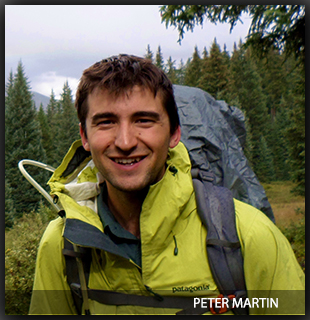 Location?
Location?
Caltech
What is your role in the SAM project?
I'm a graduate student working with participating scientist Ken Farley.
What about SAM do you find most interesting? Most challenging?
SAM is perhaps the most capable instrument to have ever been deployed on the surface of Mars, leading to both its excitements and its challenges. SAM is interesting because it lets us address some of the most basic questions about the history of the rocks in Gale Crater: How old are they? How long have they been at the surface? When the rocks formed, did they trap organics inside? A capable instrument means complicated data, so the biggest challenge I face with SAM is developing a complete understanding of the data and putting it in context.
Have you worked on other missions or flight instruments? If so which ones?
This is my first mission; I'm also working on the upcoming Mars 2020 rover as a part of the SHERLOC team.
What kind/level of education do you have?
I'm a graduate student in geochemistry at Caltech.
What are your favorite things to do outside of work?
I love spending time outside! I spend most of my free time hiking in the summers and skiing in the winters.
+ Amy McAdam:
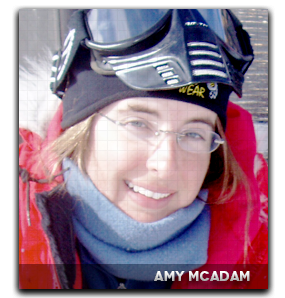 What is your role in the SAM project?
What is your role in the SAM project?
I'm a research scientist on the SAM science team. I perform evolved gas analysis
(EGA) studies of Mars analog minerals and materials under SAM-like conditions, in
support of similar measurements that will be taken by SAM on the surface of Mars.
What about SAM do you find most interesting? Most challenging?
I've always been fascinated by Mars and the possibility of past or present habitable
environments there. It is very interesting and exciting to be involved with one of
the most sophisticated instrument suites ever sent to investigate the geochemistry
of the surface of Mars, including the organic geochemistry. One challenge has been
learning how to best optimize SAM EGA experiments for the variety of materials
that could be encountered on Mars.
Have you worked on other missions or flight instruments? If so which ones?
This is the first time I've worked on the team for a flight instrument.
What kind/level of education do you have?
Ph.D. in Geological Sciences
What are your favorite things to do outside of work?
Hiking, reading, biking, traveling, cooking
+ Chris McKay:
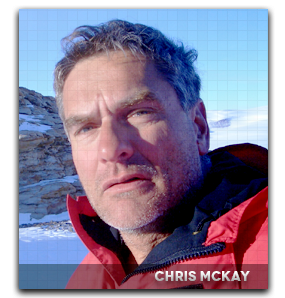 What is your role in the SAM project?
What is your role in the SAM project?
Connection of the results to astrobiology and the possibility of life on Mars.
What about SAM do you find most interesting? Most challenging?
The possible detection of organics despite the challenges of perchlorate and cosmic
rays. This is both the most interesting and challening aspect to me.
Have you worked on other missions or flight instruments? If so which ones?
Phoenix to Mars, Huygens probe to Titan
What kind/level of education do you have?
Phd
What are your favorite things to do outside of work?
Field exploration of Mars analog environments
+ Maëva Millan:
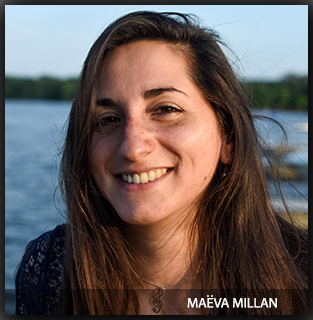 What is your role in the SAM project?
What is your role in the SAM project?
I am a post-doctoral fellow investigating the detection and preservation of organic molecules on Martian analogs samples to help the search of organics on Mars. My daily laboratory experiments are analytical chemistry experiments using pyrolysis and wet chemistry (derivatization) coupled to GC-MS. I try to replicate SAM conditions as closely as possible to help the interpretation of the SAM flight data.
What about SAM do you find most interesting? Most challenging?
Sending an instrument in another planet is never easy, even on Mars which has been explored from Earth, on orbit and in-situ for many decades. We never know what we are going to discover once we get to the landing site. It could be discovering new minerals, molecules or technical constraints related to SAM. So when we mimic the SAM-flight analytical conditions on Earth through laboratory experiments, we have to work in parallel of the SAM discoveries and constantly adapt the experiments. It could mean find "tricks" to be as close as possible of SAM or understand how the minerals discovered behave in presence of the organic molecules we expect to find on Mars.
Have you worked on other missions or flight instruments? If so which ones?
I have been working on SAM for several years now since my PhD was on the same topic. But the lessons we are learning from SAM are also used to prepare the pyrolyzer-GC-MS experiment: Mars Organic Molecules Analyzer (MOMA) that will be on the future ExoMars 2020 martian rover.
What kind/level of education do you have?
After completing a M.S. in Planetary Sciences, I did a PhD in specialty Astronomy, Astrophysics and Spatial Engineering. During my PhD, I mostly focused on analytical chemistry and geochemistry experiments at the University Paris-Saclay in France and the Laboratory Atmosphere, Environment and Spatial Observations (LATMOS).
What are your favorite things to do outside of work?
I have been playing the piano and singing since I’m 7 and I’m trying to keep up since I moved out to the US! I also love traveling, hiking and taking photos of the beautiful places, landscapes and people I meet during my trips.
+ Tobias Owen (1936-2017):
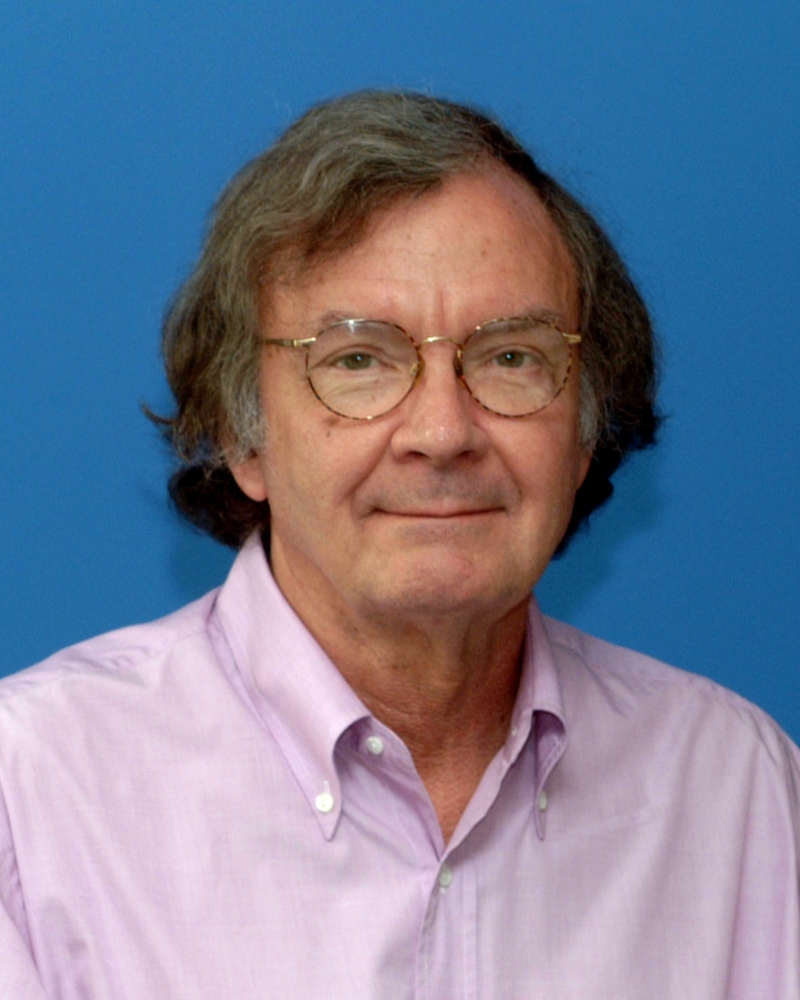 What is your role in the SAM project?
What is your role in the SAM project?
Analysis and interpretation of isotope data for volatiles
What about SAM do you find most interesting?
The ability to search for organic compounds in the atmosphere and surface
materials and their relationship to past and present possibilities for the existence of
living organisms.
Most challenging?
Untangling possible evidence for life from products of geochemistry
Have you worked on other missions or flight instruments? If so which ones?
Yes! Viking, Voyager, Galileo, Cassini-Huygens--Now Rosetta and Juno
What kind/level of education do you have?
PhD
What are your favorite things to do outside of work?
Hiking, Swimming, Foreign Travel, Classical Music, Operas, Plays, Social Issues
+ Francois Raulin:
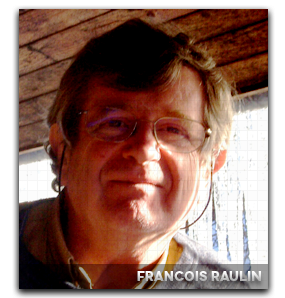 What is your role in the SAM project?
What is your role in the SAM project?
scientific help with my expertise in planetary astrobiology
What about SAM do you find most interesting? Most challenging?
a highly powerful analytical instrument looking for chemical signatures
of past/extent life or prebiotic chemistry on large martian areas, and
within a wide international cooperation!!
Have you worked on other missions or flight instruments? If so which
ones?
Yes: Cassini-Huygens (IDS, and the GC-MS, ACP and CIRS instruments) and
Rosetta (Cosima and COSAC instruments)
What kind/level of education do you have?
Chemical engineer (ESPCI, Paris) and PhD (Université Paris 6)
What are your favorite things to do outside of work?
Mountain skiing in the French Alps
+ Susanne Schwenzer:
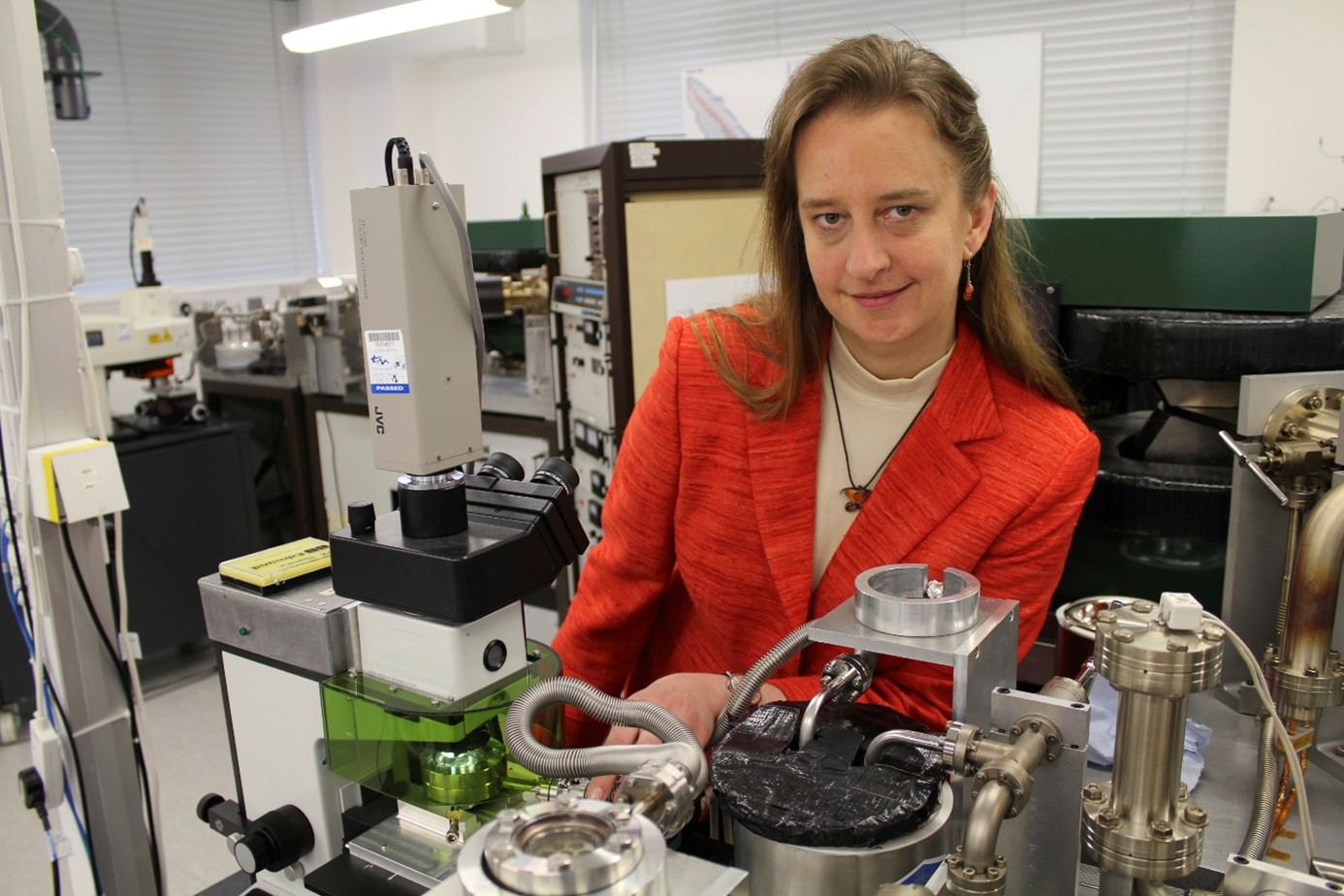 What is your role in the SAM project?
What is your role in the SAM project?
I am a participating scientist specializing in volatile-rock interactions, and for SAM this means noble gases, and also methane.
What about SAM do you find most interesting? Most challenging?
I find the complexity of data that SAM can get from any one sample is both, most interesting and most challenging. Knowing what elements are released at what temperature can tell so much about the minerals that are there – but also the surface processes.
Have you worked on other missions or flight instruments? If so which ones?
MSL is my first mission, and this is very exciting, but I am also involved with ExoMars preparations for 2022 here in Europe.
What kind/level of education do you have?
Diplom (old fashioned German way of doing a Master degree) in Mineralogy, and a PhD in Earth and Planetary Science.
What are your favorite things to do outside of work?
Reading, especially biographies, cross stitching and being in the outdoors for anything from geology to hiking and playing Pokemon GO.
+ Oren Sheinman:
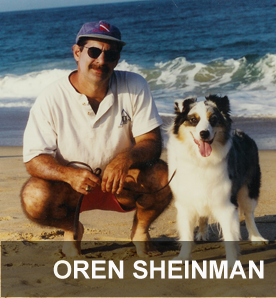 What is your role in the SAM project?
What is your role in the SAM project?
Lead Mechanical engineer on SAM.
What about SAM do you find most interesting? Most challenging?
Interesting working on an interplanetary mission and the constant awareness that this box I was touching would some day be roaming about a planet other than Earth millions of miles away. Also found it not only interesting, but very enjoyable interacting with the team and the diverse backgrounds from which we all come from that came into play to solve the daily challenges which arose. Challenging: Mechanically packaging "10 lbs of Potatoes into a 5 lb bag", i.e. keeping all components which make up the instrument suite within a very tight volume and mass constraint while maintaining access and serviceability to them.
Have you worked on other missions or flight instruments? If so which ones?
Yes, - COBE, XTE, Swift, Image, E-01, Constellation-X, JWST, etc.
What kind/level of education do you have?
B.S. in Aerospace Engineering, University of Maryland.
What are your favorite things to do outside of work?
Bicycling, Boating, Scuba Diving, Australian Shepherds, Big Green Eggs, and working/fusing with glass.
+ Jennifer Stern:
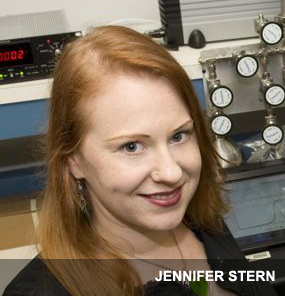 What is your role in the SAM project?
What is your role in the SAM project?
I help understand the carbon, oxygen, and hydrogen isotopic composition of gases (carbon dioxide, water, and methane) evolved from the heating of solid Mars regolith. I also work on experiments heating Mars analog samples in the presence of oxygen to combust any organic carbon to CO2, and measure the carbon isotopic composition of that CO2 to determine its source or the process that formed these molecules, and whether that process was biological or geological.
What about SAM do you find most interesting? Most challenging?
What's most interesting about SAM - It's amazing how much capability you can fit into a small space! Also fascinating that so many people contributed their individual scientific and engineering expertise to making this happen. Finally, the sheer number of experiments you can do on SAM, between the QMS, GC, and TLS is incredible, giving us the versatility to customize analysis of these unknown samples.
Have you worked on other missions or flight instruments? If so which ones?
SAM is my first instrument, and MSL is my first mission.
What kind/level of education do you have?
PHD in Geology, with a focus in Low Temperature Geochemistry.
What are your favorite things to do outside of work?
Outside of work, I love to bike, hike, and run, I teach spinning and zumba, and perform as a bellydancer.
+ Cyril Szopa:
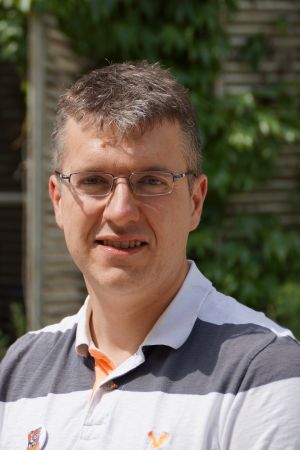 What is your role in the SAM project?
What is your role in the SAM project?
Instrument scientist of the Gas Chromatograph sub-system
What about SAM do you find most interesting? Most challenging?
I like the complementary instrumentation used in SAM that will allow us to collect
very important complementary data for astrobiology studies of the Mars surface. I
also like to think that it will be the first experiment of this type to reach Mars since
the Viking probes in the 70's ! I think that the data treatment will be challenging !
Have you worked on other missions or flight instruments? If so which ones?
I am a team member of the Aerosol Collector and Pyrolyzer (ACP) experiment of the
Cassini-Huygens mission.
What kind/level of education do you have? I have a PhD in Atmospheric Chemistry and Physics. What are your favorite things to do outside of work? I like to practice sports and take care of my young children
+ Melissa Trainer:
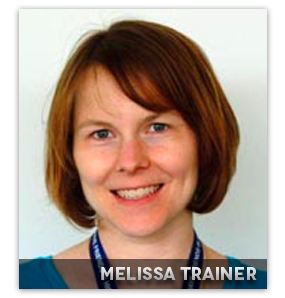 Location?
Location?
Goddard Space Flight Center
What is your role in the SAM project?
My role is as a scientist who will be able to analyze the data coming back from Mars to understand the composition of the atmosphere and rocks that we encounter in Gale Crater. I have a background in atmospheric chemistry and organics so will be most interested in some of the atmospheric samples or the organic molecules we will hopefully find! I have also helped develop some of the training manuals for the team to get everyone up to speed with the instrument software and data analysis.
What about SAM do you find most interesting? Most challenging?
There are so many ways in which a sample can be measured, so we have a lot of flexibility on Mars to really get at the heart of the questions we are asking about the chemical makeup of the environment (rocks, air). However, this is part of what makes it so challenging, there will be so much to understand about how the sample was collected and processed before we can put our scientific data into context.
Have you worked on other missions or flight instruments? If so which ones?
SAM is the most mature flight instrument I've worked on. Since coming to Goddard I've been involved in other mission proposals but haven't worked on others that have flown.
What kind/level of education do you have?
I have a Ph.D. in Chemistry.
What are your favorite things to do outside of work?
Hang out with my family, including my son who will be almost 3 when MSL lands! Together we like to spend time with friends, explore the Washington D.C. region, go camping in the summer, and travel whenever we can.
+ Chris Webster:
 What is your role in the SAM project?
What is your role in the SAM project?
Co-I lead for the Tunable Laser Spectrometer (TLS) instrument
What about SAM do you find most interesting? Most challenging?
We have a great PI, an outstanding, devoted team, and the best set of experiments
ever sent anywhere in the solar system. While the day-to-day surface operations
will be challenging, SAM will no doubt make important science discoveries that
together with those from other instruments will make MSL the greatest Mars
mission to date.
Have you worked on other missions or flight instruments? If so which ones?
TLS has been flown in hundreds of aircraft (ER-2, WB-57, DC-8, Global Hawk) and
balloon flights, was on the Cassini- Huygens Probe Phase A payload (not flown),
crashed on the surface of Mars on board the Mars Polar Lander, and has been
included in numerous Mars Scout, Discovery and New Frontiers proposals, including
an earlier Mars Scout Balloon mission led by Paul Mahaffy who first recognized the
power of combining GC-MS-TLS as an analytical suite.
What kind/level of education do you have?
B.Sc (Hons) Chemical Physics; Ph.D. Molecular Spectroscopy
What are your favorite things to do outside of work?
Apart from work?
Well, I enjoy traveling, writing poetry, fixing cars and houses, and
experimenting with ethanol when tinted at wavelengths around 580-620 nm from
fermentation processes.
+ Amy Williams:
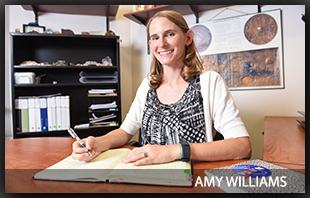 What is your role in the SAM project?
What is your role in the SAM project?
I am an astrobiologist and geobiologist and lead SAM’s TMAH wet chemistry experiment, which allows SAM to detect organic molecules that are otherwise difficult to see. These organic molecules include those potentially made by life, like long-chain fatty acids. Short chain fatty acids are also delivered to Mars by meteorites, and this experiment will help us understand the flux of organics to the Martian surface.
What about SAM do you find most interesting? Most challenging?
I have always wondered if we are alone in the universe, and working with the SAM instrument allows me to search for organic molecules that could be made by life, if life is or was present on Mars. One of the biggest challenges will be deconvolving the complex data that SAM produces to determine if organic molecules on Mars are abiotic or biogenic.
Have you worked on other missions or flight instruments? If so which ones?
On the Curiosity mission I have worked with the MMM (MastCam, MAHLI, MARDI) camera team and the ChemCam team.
What kind/level of education do you have?
I have a Ph.D. in Geology from the University of California, Davis.
What are your favorite things to do outside of work?
Train for duathlons, hike, travel, garden, and cook!
+ Greg Wong:
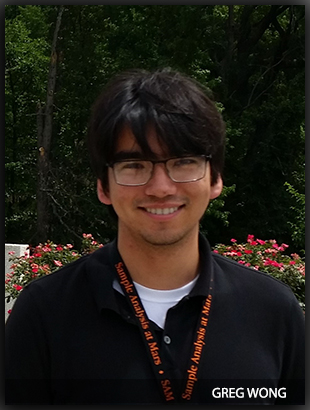 What is your role in the SAM project?
What is your role in the SAM project?
I am a grad student science collaborator investigating possible sources of reduced sulfur observed by SAM. I conduct laboratory evolved gas analysis (EGA) experiments.
What about SAM do you find most interesting? Most challenging?
Most interesting: We can collect and analyze data from another planet. Every sample offers something exciting and brand new!
Have you worked on other missions or flight instruments? If so which ones?
I worked on a high-altitude scientific balloon experiment, Exposing Microorganisms in the Stratosphere (E-MIST). SAM is my first experience with an instrument on another planet!
What kind/level of education do you have?
I have a bachelor’s degree in Molecular Biology and Biochemistry. I am currently working on my Ph.D. in Geosciences and Astrobiology.
What are your favorite things to do outside of work?
I enjoy hiking, bowling, cooking, and playing the guitar/piano.
+ Mike Wong:
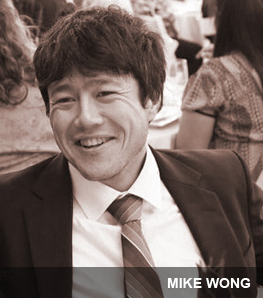 What is your role in the SAM project?
What is your role in the SAM project?
I am a Collaborator on the SAM team, primarily doing calibration, analysis, and interpretation of the data.
What about SAM do you find most interesting? Most challenging?
I worked with a less advanced ancestor of SAM: the Galileo Probe Mass Spectrometer. That instrument measured atmospheric composition for more than an hour as the probe parachuted into Jupiter.
My area of focus has been volatile gases, which change from gaseous to condensed form depending on the local conditions. On Mars, both water and carbon dioxide can condense. Volatile gases are intriguing because they trace dynamic processes in the atmosphere, and can yield clues to how the atmosphere and climate evolved throughout the planet's history. And water is thought to be a requirement for life.
Have you worked on other missions or flight instruments? If so which ones?
* Galileo Probe Mass Spectrometer
* Cassini Composite Infrared Spectrometer
* Hubble Wide Field Camera 3
What kind/level of education do you have?
I have a PhD in Atmospheric and Space Science from the University of
Michigan.
I actually disagree with Pan Conrad's statement above, "To do my job, you have to get a PhD in science." I know several planetary scientists and astronomers without PhDs who make significant contributions to the field. Getting a PhD is the most common way into research, but it's not the only way.
What are your favorite things to do outside of work?
For exercise I like to practice judo and ride bikes. I'm also really into music. In grad school I had a radio show segment called "The Protoplanetary Nebula," which was a stereo interpretation of the formation of the solar system.

